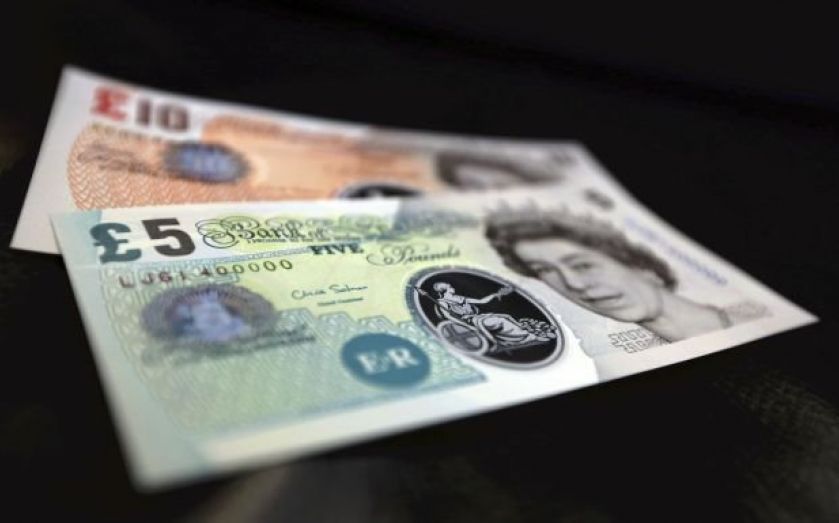| Updated:
IMF warns that “overvalued” pound is detrimental to economy

Today, the International Monetary Fund (IMF) said that the pound is “overvalued”, and that this is causing the economy to rely too heavily on spending and imports.
In its annual assessment of the UK economy, it said that the sterling is between five and ten per cent overvalued, and that it has strengthened by around ten per cent against the dollar over the past year.
It attributed this to a “lack of competitiveness and limited export diversification”, saying that the pound's strength was impeding the efforts to close Britain’s trade deficit and leaving too large a current account deficit.
It also said that its real effective exchange rate, taking into consideration the UK's trading patterns and inflation, is six per cent stronger than the average for 2013.
“Staff estimates that the current account balance is 2.6 per cent weaker than its equilibrium level, and that the real exchange rate is overvalued by about 5–10 per cent,” the IMF said.
It added that skilled immigration would be a a route to higher productivity, but that the coalition has been blocking this. “Relaxing immigration requirements in areas with labour shortages, such as manufacturing, could provide a boost to productivity and facilitate the rebalancing of the UK economy,” it said.
To rectify the situation, it recommended that Britain becomes more competitive through continued public spending cuts and more efforts to increase productivity.
The assessment came with a warning that, if Britain fails to boost productivity, the Bank of England may have to go ahead with raising interest rates sooner than would otherwise be the case. “Should productivity fail to pick up, the MPC would eventually have to tighten monetary conditions to damp inflationary pressures, in keeping with its mandate,” it said.